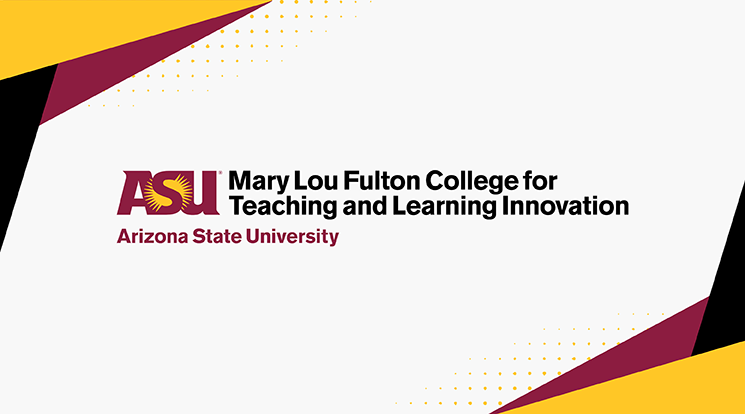Profile in intrapreneurship: Alumnus leads across disciplines

Alumnus Jeffrey Leeds (PhD ’91) recounts the hundreds of times he handed someone a business card: First, they’re impressed he has a PhD and ask what he studied. “I respond by telling them I have a doctorate in educational psychology from ASU’s Mary Lou Fulton Teachers College,” Leeds says. The follow-up question, “What in the world are you doing in strategic alliances at a technology company?”
Leeds, who is senior manager of strategic alliances at NetApp, a storage and data management company, answers thoughtfully, “The years I spent at ASU didn’t just teach me about learning principles, how to build effective educational materials, how to execute and consume research, but also taught me a different way of problem-solving, communicating effectively and understanding how people can learn more effectively.” Leeds says communicating effectively is the single-most important quality that has helped him advance in his career.
A career takes flight
Leeds began his educational career at San Diego State University, studying experimental psychology, in which he earned his master’s degree. While at SDSU, Leeds worked for the U.S. Navy doing human factors research. Through a connection, he heard about an open position at Luke Air Force Base as a principal research investigator. Leeds was offered the job — a four-year contract and the largest Air Combat Performance Measurement study in Air Force history.
While at Luke, Leeds forged a close relationship with his manager, Fritz Breke, also an MLFTC alumnus who earned his doctoral degree in the ’70s. Breke suggested Leeds continue his education and use the study he was doing as a doctoral dissertation.
“When I examined what I wanted to do next, academically,” Leeds says, “I knew [it] wasn’t enough. I wanted something that would expand my skills, knowledge and give me some level of vocation.” Working with Breke solidified Leeds’ decision to venture into education, which led to Leeds earning a doctorate at MLFTC.
Leeds says that when he approached MLFTC faculty about his project with Luke, “It was met with great enthusiasm. They were able to really help me in building out my research methodology, statistical approach to the data and really think about how the performance management platform that we were building could be used to measure performance improvement.”
Leeds’ doctoral committee became very involved with the research methodology and statistical analysis of the data, including visiting the base and learning how to fly an F-16. In 1991, the research concluded in Leeds’ doctoral dissertation and a major Air Force technical research document.
An obvious leader, Leeds began managing people while at Luke. “I first try to find great individuals who can execute their job. Then, I see where they excel and where they’re lacking. Allowing someone to execute where they’re strong without guidance is key to helping that person build confidence while coaching and helping them in the areas that aren’t quite as strong.”
Leading into a new millennium
Moving on from Luke Air Force Base, Leeds took his intrapreneurial spirit with him. He was working at Symantec Corporate as a product manager, leading a development team building Norton AntiVirus in the days before it was a multibillion-dollar industry. This was also the time of Y2K, a problem in the coding of computerized systems that was projected to wreak havoc in computers and computer networks around the world at the start of the year 2000.
Leeds’ manager asked him to become the “Y2K Czar” for all of Symantec’s products. This six-month role took him away from his team and sent him to work with every product team at the company. Every product handed Leeds its own set of challenges, as some products had been obtained through acquisitions while others had been developed in-house. Leeds worked intimately with engineering, product management and senior management to ensure each product had a remediation plan to safeguard for the date change. Leeds was successful. On January 1, 2000, no Symantec products had a single issue and many were performing mission-critical functions.
Investing in people
From Symantec, Leeds moved on to Financial Engines, a company with a mission to help the average person build an investment strategy for their 401k retirement accounts. The product was based on the availability of the internet and power of personal computers, which could give the average investor access to technology that the company’s creator had developed with his graduate students in the economics department at Stanford. Financial Engines created the first platform that made this possible.
The early adopter companies, like Merck Pharmaceuticals, had computer-literate employees and access to fast internet connections, while new and interested companies like Nissan Corporate had factory workers who were not computer literate and didn’t have access to high-speed internet. Leeds and his team wanted to give them the same experience.
They met, across all departments, and realized that they could create a paper-based data gathering system that would enable the employee to fill out a paper-based questionnaire so that the data could be entered into the computer program. Yet they still needed to figure out a way to enter this data properly into the system and ensure that fiduciary liability concerns would be met.
Leeds researched using AltaVista Search (this was before Google) and found a firm that was able to scan the forms and merge the data into the Financial Engines platform with a 100-percent certainty of accuracy. This resulted in several thousand factory workers at Nissan at their Smyrna, Tennessee factory getting real advice on how to invest their 401k accounts — just like the Merck employees received.
During high school, Leeds worked at a fish store. When asked how he went from that to where he is now, he offers advice on how others can follow in his footsteps, “First, figure out how, in your current role, you can show a base of work that would be relevant to your desired role. And then, do the research, read, network and study.”
Find out more about our doctoral programs.